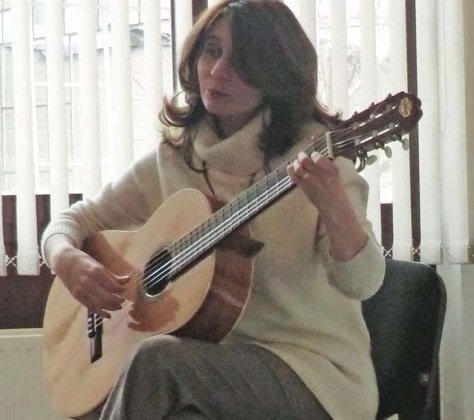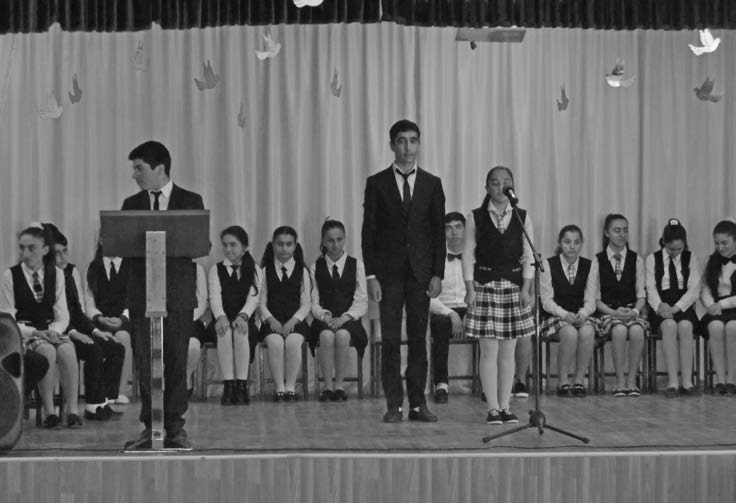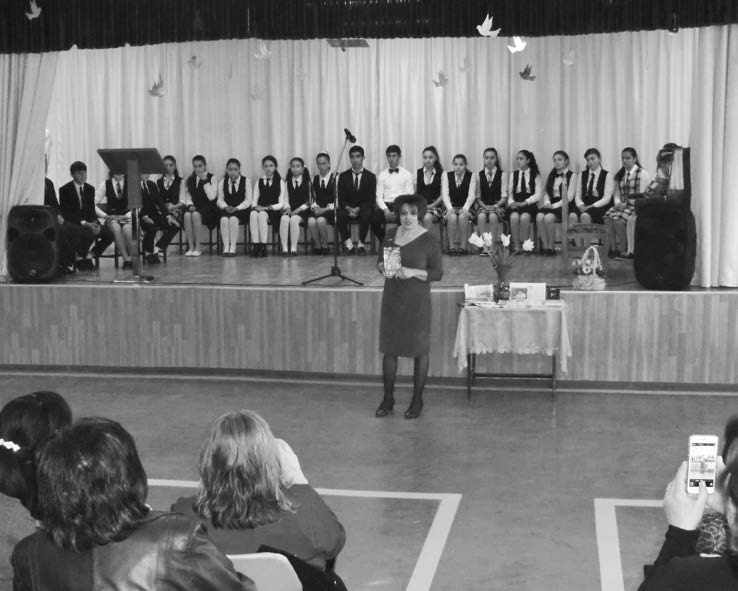Armenia’s Heart: Poems … and Nothing More
May/25/2017 Archived in:Culture

Lilit Sargsyan in Gyumri
Muriel Mirak-Weissbach
Special to the Mirror-Spectator – MAY 18, 2017
GYUMRI — Anyone who knows anything about Armenians is aware of the special role their language plays in their history and culture, and nowhere is this more obvious than in their rich poetical tradition. In Germany, this tradition is not unknown; in the 1970s and 1980s, through cooperation between literary associations in the then-Communist East Germany (GDR) and Soviet Armenia, translations of works appeared by Hovhannes Tumanyan, Avetik Issahakyan and Paruyr Sevak as well as an anthology of medieval verse. At the same time, literary journals in West Germany featured some translations. Now, in the wake of the recognition of the genocide last June by the German Bundestag (Parliament), a wave of interest in Armenian literature has swept across the intellectual landscape.
In 2015, a new translation of 24 poems by Paruyr Sevak was issued by Schiler Verlag in Berlin, the result of a joint effort by prize-winning German author Heide Rieck and Agapi Mkrtchian, an Armenian author honored in Yerevan by the Armenian Writers Union with the Vasdakovor order, as an author of outstanding merit. Now, an anthology has appeared in Grössenwahn Verlag, translated by Mkrtchian and Helmuth R. Malonek, a German translator and university professor who studied in Yerevan and teaches in Portugal. The volume is entitled “Armenia’s Heart: Poems … and Nothing More,” and includes works by twenty-five contemporary Armenian poets.
As Prof. Tessa Hofmann writes in an extensive Afterword, they include well-known poets from the older generation of the 1940s and 1950s like Arevshat Avagyan, Henrik Edoyan and Edward Militonyan, as well as authors born in the 1970s and 1980s, who represent a post-Soviet literature. In addition to traditional themes in Armenian poetry, like love, religion and nature, Hofmann notes the treatment of emigration, for example, in the works of Varlan Alexanyan, Edward Militonyan, Ani Ter-Gulanyan, Eduard Harenz, Agapi Mkrtchian, Arevshat Avagyan and Arpi Voskanyan.
Opening Doors with Poetry
In her commentary, Hofmann quotes lines from a poem by Chilean Vicente Huidobro that say, “Let poetry become a key that opens a thousand doors.” Both in Armenia and in Germany, doors have been opened by the public readings of poems from this anthology in both languages. While on a recent visit to Armenia my husband and I had the opportunity to enjoy an event in Gyumri on April 9 at the Berlin Hotel, an inter-cultural center for artists and writers, where Agapi Mkrtchian presented selected poems in both languages. Attending the gathering, which was celebrated by violin and guitar music, were several prominent members of the Gyumri Writers’ Association, who spontaneously offered readings from their works at the conclusion. Days later in Mkrtchian’s hometown of Gegashen, not far from Yerevan, students from the local school presented a two-hour program to a packed auditorium, reciting (from memory) selections from the anthology, again in both Armenian and German. Students of Mariam Kazaryan, who directs the music school, provided the musical counterpoint to the poetry.
As soon as we entered the school, my husband and I were surprised to be greeted by faculty members in German. As we learned during a tour of the school, German is an integral part of the cultural tradition there and all pupils begin to study it as a foreign language already in the third grade. In fact, this is where Mkrtchian first encountered the language; later she was to pursue higher education in Germany and today teaches it at the high school level in Wiesbaden. On stage, one after another young girl or boy stepped forward to recite poems from the new book, and we were amazed at the proficiency of their delivery, particularly considering that the book had just come off the press and they had prepared the entire program in one short week.
Back in Germany, the book has already been presented at the Leipzig book fair and will be featured by publisher Grössenwahn in October in Frankfurt. On May 5, at the Wiesbaden Literaturhaus, guests were introduced to the poems by Mkrtchian and members of the Dichterpflänzchen, a poetry lovers’ association, who recited in German, and Susanna Markosyan and Lilit Sargsyan, in Armenian.
A generous selection of poems provided the audience with a broad sample of the volume: Armenuhi Sisyan, Narek Kirakosyan, Vardan Hakobyan, Nane, Agapi Mkrtchian, Edward Militonyan, Arusyak Ohanyan, Sona Van, Arevshat Avagyan, Benik Stepanyan, Anush Aslibekyan and Anush Vardanyan.
Again, music completed the evening, and again in both traditions; Diana Sahakyan performed selections from Chopin and Schubert on the piano whereas Arpi Nazanyan and her brother Mushegh played Armenian works on the flute and cello, respectively. A special treat came in the performance by Lilit Sargsyan, who sang her own compositions accompanying herself on the classical guitar. Sargsyan, who is founder and editor in chief of the magazine “Chrag”, composes both the verse and the music and has won prizes for her interpretations. She is currently studying in Germany.
With the final selection, a poem by Anush Vardanyan entitled “New Europe,” Lutz Schauerhammer from the Dichterpflänzchen said the performers wanted to encourage the younger generation of Armenian poets to look beyond their own borders and experience, abroad and to the future.
At the end of May, the Literaturhaus in Berlin will open its doors to the new anthology and book launches are to follow in several more cities.

Gegashen pupils

Agapi Mkrtchian with students from her school

